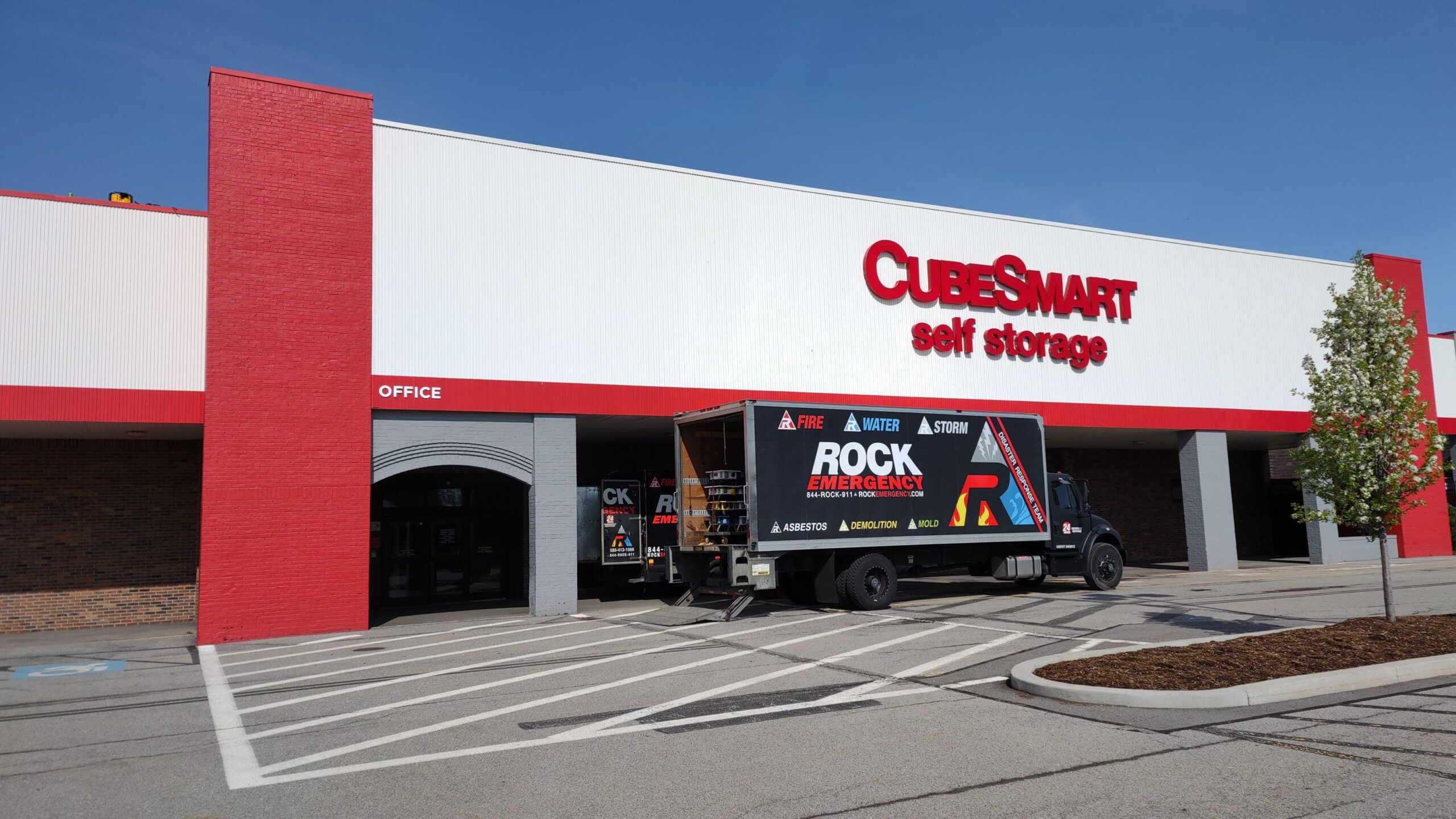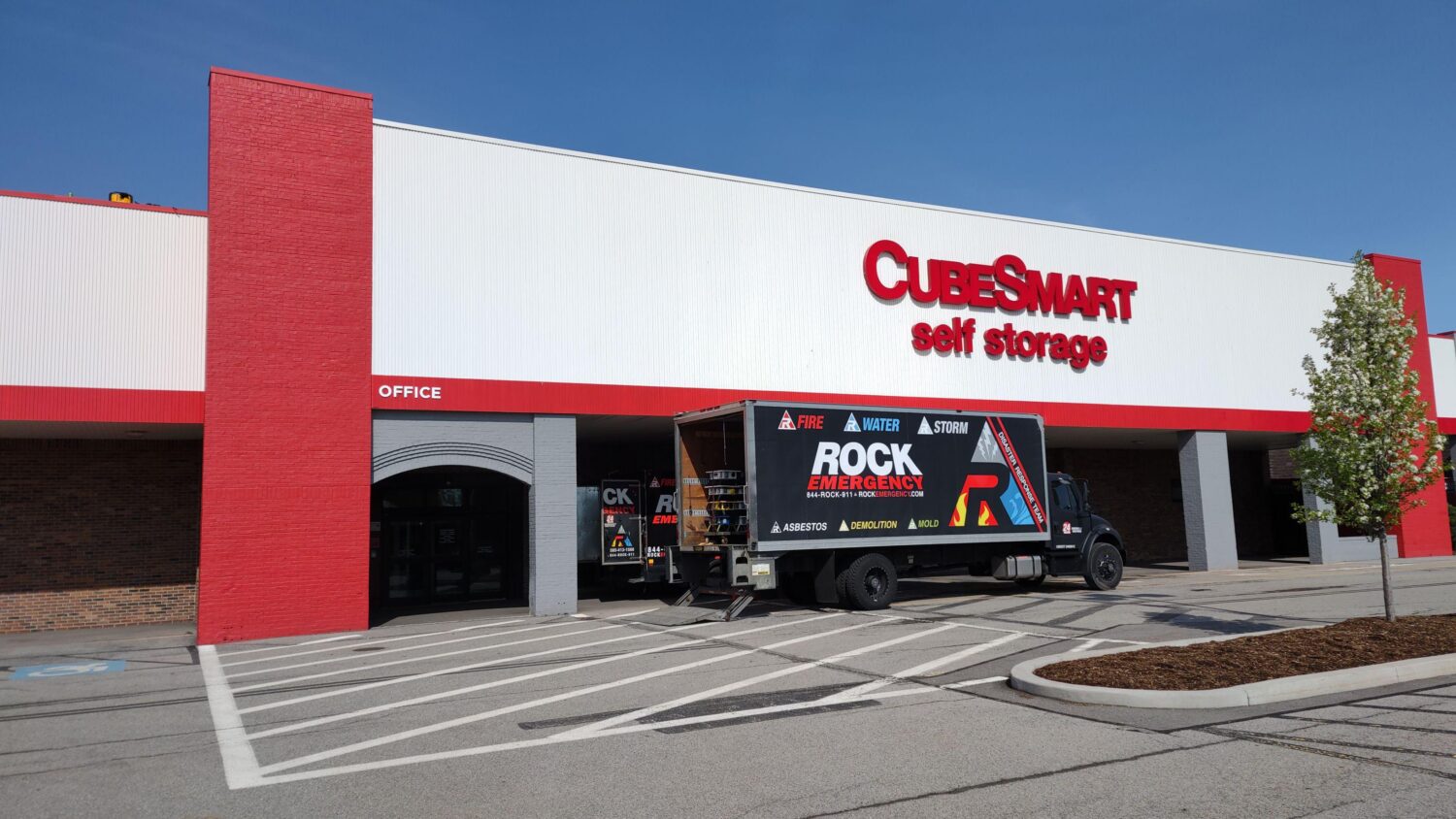When water damage strikes, it often catches property owners off guard. Whether it’s a burst pipe, flooded basement, or storm-related destruction, these situations are stressful, and the decisions you make in the moments and days after can significantly impact the outcome. At Rock Emergency, we’ve seen firsthand how certain mistakes can turn a manageable cleanup into a costly and long-term problem.
We want to help you avoid those pitfalls. In this guide, we’ll walk through some of the most common mistakes property owners make after water damage, why they happen, and how you can avoid them. Knowledge is your best defense when disaster strikes, and we’re here to make sure you’re prepared.
Key Takeaways:
- Don’t wait to start water removal. Delays lead to mold and structural damage.
- Avoid DIY cleanup for large-scale water damage; call a professional.
- Always document damage for insurance before starting cleanup.
- Turning off electricity and water right away can prevent further risk.
- Don’t assume the damage is surface-level. Hidden moisture is a major threat.
- Call your insurance company early, but don’t rely on them to handle the full scope.
- Choose a certified, local restoration company with experience in water damage.
- Monitor for signs of mold even after cleanup is complete.
- Don’t skip the drying process. Dehumidification is essential.
- Keep copies of everything: photos, receipts, contracts, and communication.
1. Procrastinating
Time is your biggest enemy when it comes to water damage. One of the most common mistakes we see is property owners waiting too long to act. Whether it’s hoping the water will dry up on its own, being unsure of what steps to take, or waiting for an insurance adjuster to inspect the damage before doing anything, delaying action only makes things worse.
Why It’s a Problem:
Water continues to spread and seep into porous materials like drywall, flooring, and insulation. Within just 24 to 48 hours, mold can start to grow. The longer you wait, the greater the damage, and the higher the repair costs.
What You Should Do Instead:
Call a professional restoration company like Rock Emergency as soon as possible. We can start water extraction, drying, and stabilization while helping you navigate the insurance process.
2. Trying to DIY the Cleanup
We totally understand the urge to handle things yourself. Maybe you want to save money or think it’s just a minor issue, but unless the damage is extremely limited (like a small spill on a tile floor) water damage cleanup should never be a DIY job.
Why It’s a Problem:
Standard household equipment can’t effectively remove moisture from behind walls, under flooring, or in structural materials. If moisture isn’t fully removed, you’re setting the stage for mold growth, wood rot, and long-term damage that isn’t immediately visible.
What You Should Do Instead:
Leave it to the professionals. At Rock Emergency, we use industrial-grade equipment like air movers, dehumidifiers, moisture meters, and thermal imaging cameras to ensure your property is completely dry and safe.
3. Failing to Document the Damage
In the chaos of a water emergency, it’s easy to forget to take photos or write things down, but proper documentation is critical for your insurance claim.
Why It’s a Problem:
If you start cleaning up before documenting the damage, you might not have proof of what was affected. That can lead to disputes with your insurance company, lower payouts, or denied claims altogether.
What You Should Do Instead:
Before any cleanup begins, take clear photos and videos of all affected areas, including damaged furniture, floors, walls, ceilings, and personal belongings. Keep a log of the time and date of the damage, and save any communication with your insurance provider.
4. Not Turning Off Utilities
In the event of water damage, especially if it’s from flooding or a burst pipe, your home’s utilities can pose serious hazards.
Why It’s a Problem:
Live electricity and water do not mix. Failing to shut off the power can lead to electrical fires or shock. And if the leak is from plumbing, leaving the water supply on will only worsen the flooding.
What You Should Do Instead:
Shut off the electricity and main water supply if it’s safe to do so. If you're unsure or it's too dangerous, wait for emergency professionals to arrive.
5. Assuming the Damage Is Only on the Surface
What you see is only part of the big picture. Water has a sneaky way of spreading far beyond the obvious signs—behind walls, under floors, into insulation, and even into structural components.
Why It’s a Problem:
Hidden moisture can create ongoing damage long after the initial incident is cleaned up. Mold growth, wood rot, and weakening of load-bearing materials can all result from undetected water.
What You Should Do Instead:
Get a full inspection from a certified water damage restoration professional. At Rock Emergency, we use advanced tools to detect hidden moisture and ensure nothing gets missed.
6. Waiting for Insurance Before Taking Action
Many people believe they can’t touch anything until an insurance adjuster shows up. But that’s not true, and waiting can be a costly mistake.
Why It’s a Problem:
Insurance companies want you to mitigate damage to prevent further loss. Waiting can actually hurt your claim and result in more extensive, costly repairs.
What You Should Do Instead:
Call your insurance company promptly and make them aware of the situation, but also call Rock Emergency. We’ll document everything thoroughly and begin the mitigation process right away to protect your property and your claim.
7. Hiring the Wrong Restoration Company
Not all restoration companies are created equal. After a disaster, some national companies or traveling contractors swoop in, especially after major storms. They may lack local experience or cut corners to move quickly.
Why It’s a Problem:
If the job isn’t done properly, you may face ongoing issues like mold, odor, or structural problems. Worse, they may disappear before fixing their mistakes.
What You Should Do Instead:
Hire a trusted, local company like Rock Emergency. We’ve built a reputation in the community for dependable, high-quality service, and we’re here for you before, during, and long after the job is done.
8. Ignoring the Risk of Mold
Many people think that once the water is gone, the problem is solved. But mold can grow within just one to two days of water exposure, especially in dark or humid areas.
Why It’s a Problem:
Mold isn’t just an eyesore. It can pose serious health risks, especially for those with allergies, asthma, or compromised immune systems.
What You Should Do Instead:
Don’t stop at water removal. Ensure that your home is fully dried, and monitor for signs of mold like musty smells or discoloration. We also offer mold testing and remediation if needed.
9. Skipping the Drying Process
Some property owners think that if the water looks gone and things feel dry to the touch, they’re in the clear, but appearances can be deceiving.
Why It’s a Problem:
Moisture can remain trapped inside materials long after the surface feels dry. Without proper drying using dehumidifiers and air movers, long-term problems will develop.
What You Should Do Instead:
Ensure a thorough drying process. Rock Emergency uses commercial-grade drying systems and moisture monitoring to confirm that everything is truly dry, inside and out.
10. Not Keeping Proper Records
Dealing with water damage can be a real headache, with cleanup and insurance claims feeling totally overwhelming, but trust us, keeping super detailed records like receipts, emails, contracts, is absolutely essential, even when things are crazy.
Why It’s a Problem:
Without clear documentation, you could have trouble getting reimbursed or proving your case if any disputes arise.
What You Should Do Instead:
Keep a dedicated file (digital or physical) with everything related to the incident, including photos, receipts, emails, invoices, and communication with contractors or insurers.
11. Overlooking Emotional and Health Impacts
Last but not least, many property owners forget to take care of themselves and their families during these events. Water damage isn’t just a property issue, it's a disruption to your everyday life and your well-being.
Why It’s a Problem:
Stress, anxiety, and health problems can arise after water damage, especially if you’re dealing with displacement, mold exposure, or the loss of personal belongings.
What You Should Do Instead:
Lean on your support system. Talk to a professional if needed, and remember—you’re not in this alone. At Rock Emergency, we’re more than a restoration company. We’re a partner who truly cares.
Final Thoughts
Water damage can be overwhelming, but avoiding these common mistakes can make the process much smoother and less stressful. Acting quickly, working with experienced professionals, and staying informed every step of the way are the keys to protecting your property and your peace of mind.
At Rock Emergency, we’ve helped thousands of property owners navigate the aftermath of water damage, and we’re here for you too.
Don’t wait until it’s too late. If you’ve experienced water damage, call Rock Emergency right away. We’re available 24/7 and ready to respond with expert care, fast action, and a commitment to doing the job right the first time. Let us help you restore your home, your business and your peace of mind. Reach out to us today.
FAQs: Filing an Insurance Claim for Water Damage
- How long do I have to file a claim after water damage?
Most policies require you to file “promptly,” usually within 14-30 days. Don’t wait. File as soon as the damage occurs. - Should I call my insurance company or a restoration company first?
We recommend calling Rock Emergency first. We can stop the damage, help document the loss, and support your claim from the beginning. - Will my premium go up after a claim?
It depends on your insurer and claim history. A single water damage claim may not significantly impact your rates, but multiple claims can. - What if my claim is denied?
You have options. You can appeal the denial, request a second inspection, or involve a public adjuster. We can help guide you through next steps. - Is flood damage the same as water damage?
No. Flooding (from outside water sources like rising rivers or heavy rain) is usually not covered under standard homeowners insurance. You need separate flood insurance for that. - Can Rock Emergency bill my insurance directly?
Yes! In most cases, we can work directly with your insurance carrier to streamline the process and reduce out-of-pocket costs for you. - What should I do if mold starts to appear?
Mold can begin growing within 24-48 hours of water exposure. Let us know immediately. We’re also certified in mold remediation and can help stop the spread.
Let Rock Emergency Be Your Guide
Dealing with water damage is stressful enough, you shouldn’t have to become an insurance expert overnight just to get through the paperwork of it all. At Rock Emergency, we combine fast, reliable restoration with decades of experience helping customers just like you file successful insurance claims.
We’ll walk with you through every step of the process, from the first call to final repairs. We’ve got your back, and your best interest in mind.
Need help filing a water damage insurance claim?
Call Rock Emergency today and let us handle the hard stuff while you focus on getting back to normal.

